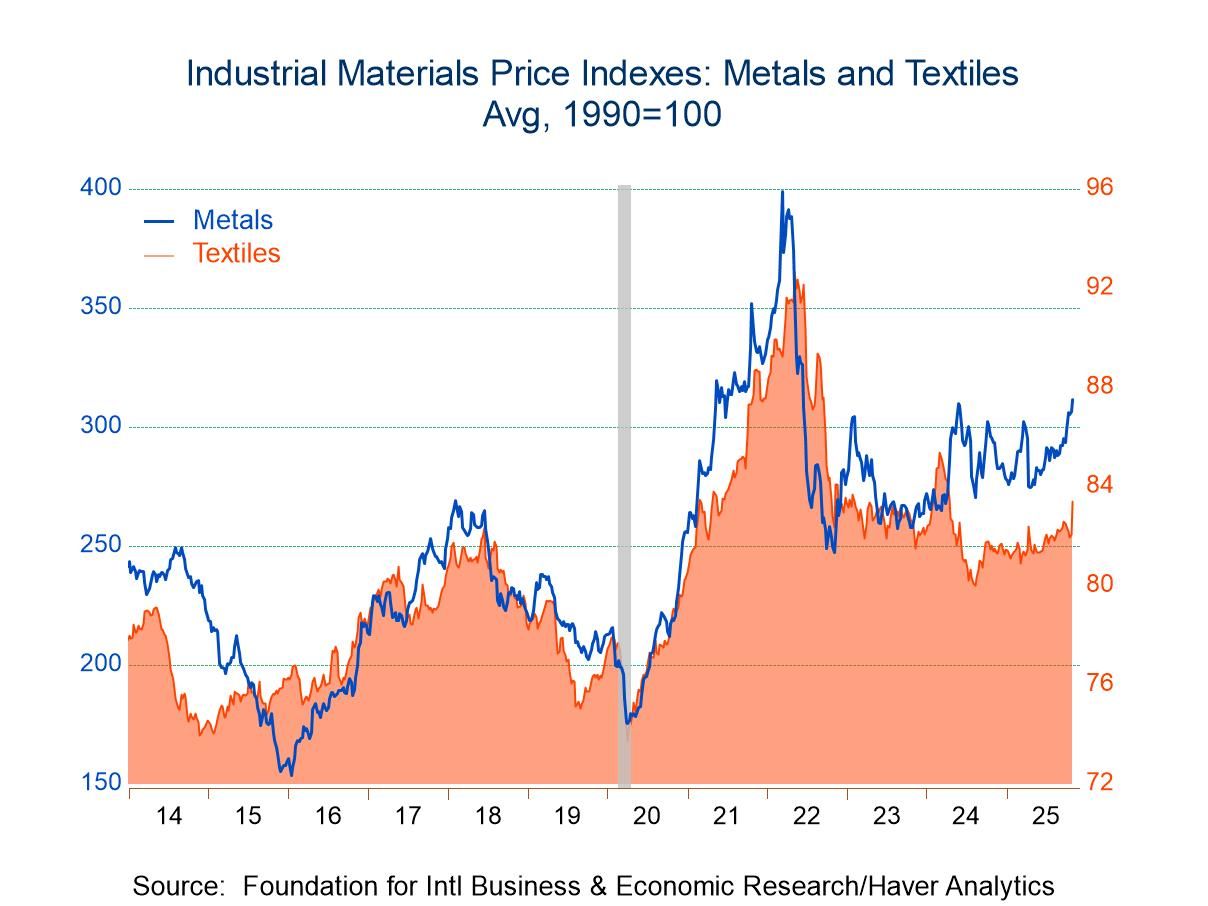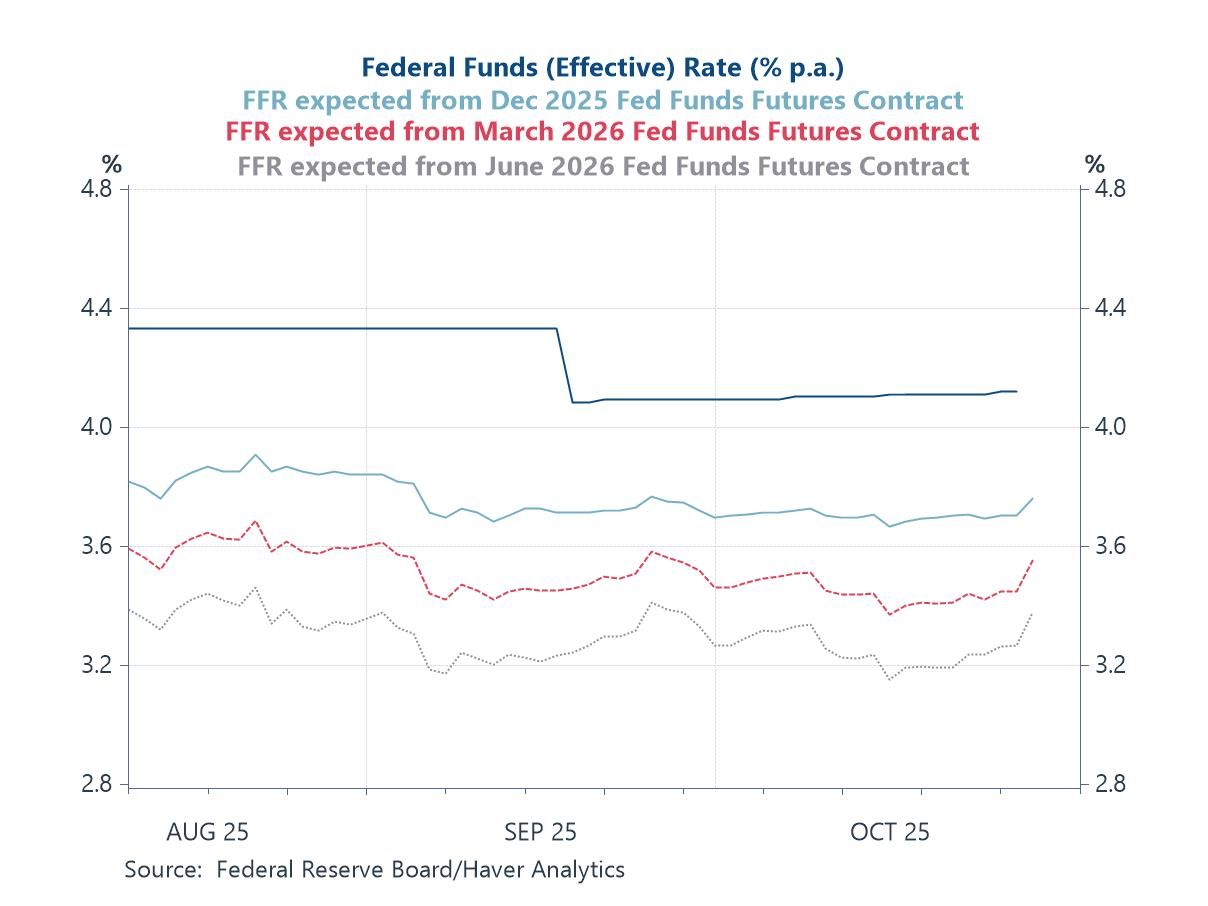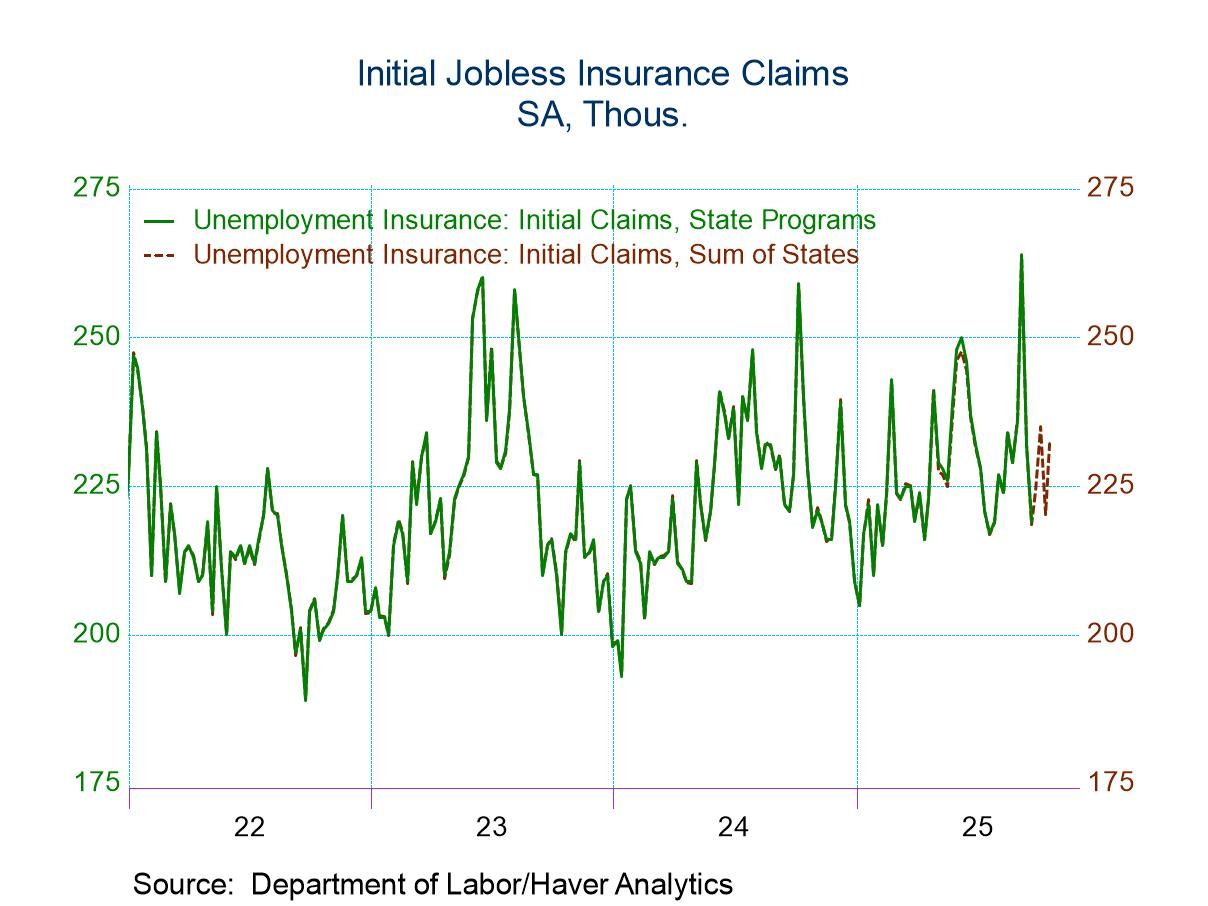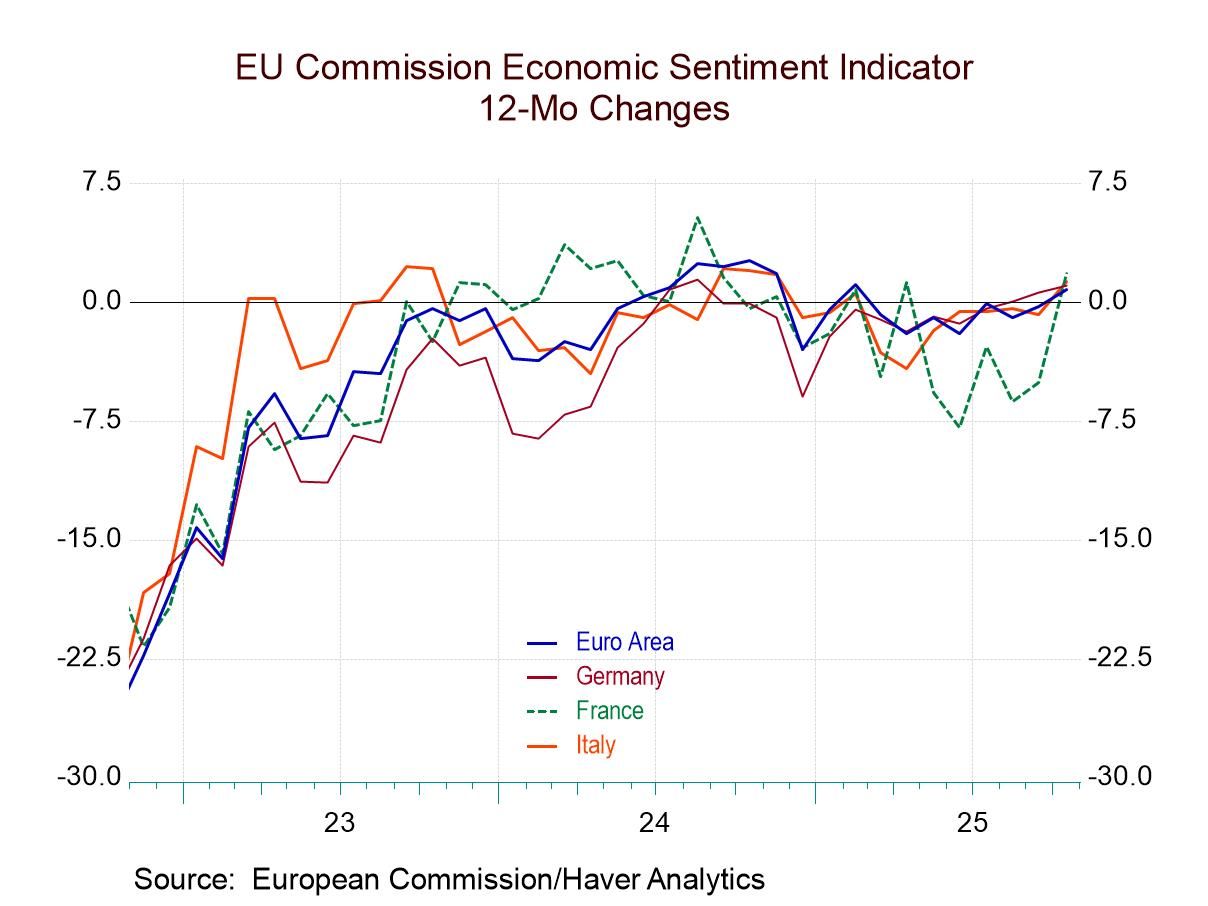 Global| Jun 10 2008
Global| Jun 10 2008EMU Industrial Production Held Firm in April
Summary
Industrial output has held firm-to-strong in most of the large EMU countries in April. France shows strengthening IP trends. In Italy the three- and six- month growth rates are just above 2%. Spain’s numbers are simply too volatile to [...]

Industrial output has held firm-to-strong in most of the large EMU countries in April. France shows strengthening IP trends. In Italy the three- and six- month growth rates are just above 2%. Spain’s numbers are simply too volatile to tell. They are on a strong upswing in April (see table) but only after showing some extreme weakness in their March trends (also in table). In the UK, output continues to edge higher. But Germany, surprisingly, shows the weakest trends in April. At -0.7%; Aprils 3-mo growth rate for Germany is now at -4.1% below the +3.3% six month pace and the +5.7% Yr/Yr pace.
This divergence points up the erratic and out of step nature of these economic trends. Germany alone shows a clear decelerating pattern for output but gives mixed signals for industry overall. Germany boasts still strong exports but also dropping production and fading – but still growing – industrial order books. And despite growth in industrial output in other EMU countries, German export orders were dropping the most in other EMU countries, too. So that is yet another mixed or inconsistent signal.
As the EMU’s largest economy Germany has supported growth in adjacent EMU members. For the time being, other EMU countries continue to register growth in April. Still, there is little sign of vigor. The European consumer is still struggling and we know that the strong euro, financial distress and spiking energy prices are continuing to take a toll. The capital goods sector continues to be the mainstay of growth in Europe. But growth overall seems to be challenged despite the spate of firm industrial output numbers reported out by the UK, Italy and France today. The risk is that Germany’s slowdown is the vanguard and weakness in the other countries will follow.
| Main E-zone Countries and UK IP in MFG | ||||||||||
|---|---|---|---|---|---|---|---|---|---|---|
| Mo/Mo | Apr 08 |
Mar 08 |
Apr 08 |
Mar 08 |
Apr 08 |
Mar 08 |
||||
| MFG Only | Apr 08 |
Mar 08 |
Feb 08 |
3Mo | 3Mo | 6mo | 6mo | 12mo | 12mo | Q-2- Date |
| Germany: | -0.7% | -0.3% | 0.0% | -4.1% | 3.6% | 3.3% | 4.4% | 5.7% | 5.0% | -5.4% |
| France: IP excl Construction | 1.4% | -1.0% | 0.5% | 3.4% | -0.8% | 0.8% | 1.9% | 3.2% | 0.7% | 5.4% |
| Italy | 0.6% | 0.0% | -0.1% | 2.1% | 7.0% | 2.1% | -1.2% | -0.1% | -1.8% | 3.6% |
| Spain | 27.0% | -16.9% | 2.6% | 37.5% | -40.3% | 10.9% | -20.4% | 11.5% | -13.8% | 106.3% |
| UK | 0.2% | -0.5% | 0.4% | 0.4% | 1.2% | 0.4% | 1.0% | 0.1% | 0.5% | 0.0% |
Robert Brusca
AuthorMore in Author Profile »Robert A. Brusca is Chief Economist of Fact and Opinion Economics, a consulting firm he founded in Manhattan. He has been an economist on Wall Street for over 25 years. He has visited central banking and large institutional clients in over 30 countries in his career as an economist. Mr. Brusca was a Divisional Research Chief at the Federal Reserve Bank of NY (Chief of the International Financial markets Division), a Fed Watcher at Irving Trust and Chief Economist at Nikko Securities International. He is widely quoted and appears in various media. Mr. Brusca holds an MA and Ph.D. in economics from Michigan State University and a BA in Economics from the University of Michigan. His research pursues his strong interests in non aligned policy economics as well as international economics. FAO Economics’ research targets investors to assist them in making better investment decisions in stocks, bonds and in a variety of international assets. The company does not manage money and has no conflicts in giving economic advice.






